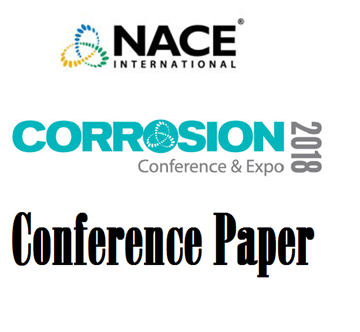Search
03536 STRESS CORROSION CRACKING OF H.C.P. METALS AND ALLOYS IN IODINE-METHANOL SOLUTIONS
Also Purchased
51314-3985-Methanol-Induced Internal Stress Corrosion Cracking in a Northern Petroleum Pipeline
Product Number:
51314-3985-SG
ISBN:
3985 2014 CP
Publication Date:
2014
$20.00
98261 STRESS CORROSION BEHAVIOR OF Ru-ENHANCED ALPHA-BETA TITANIUM ALLOYS IN METHANOL SOLUTIONS
Product Number:
51300-98261-SG
ISBN:
98261 1998 CP
$20.00
51318-10921-Titanium Alloy Stress Corrosion Resistance to Methanol Vapor in Hydrocarbon Gas Export Systems
Product Number:
51318-10921-SG
Publication Date:
2018
$20.00




